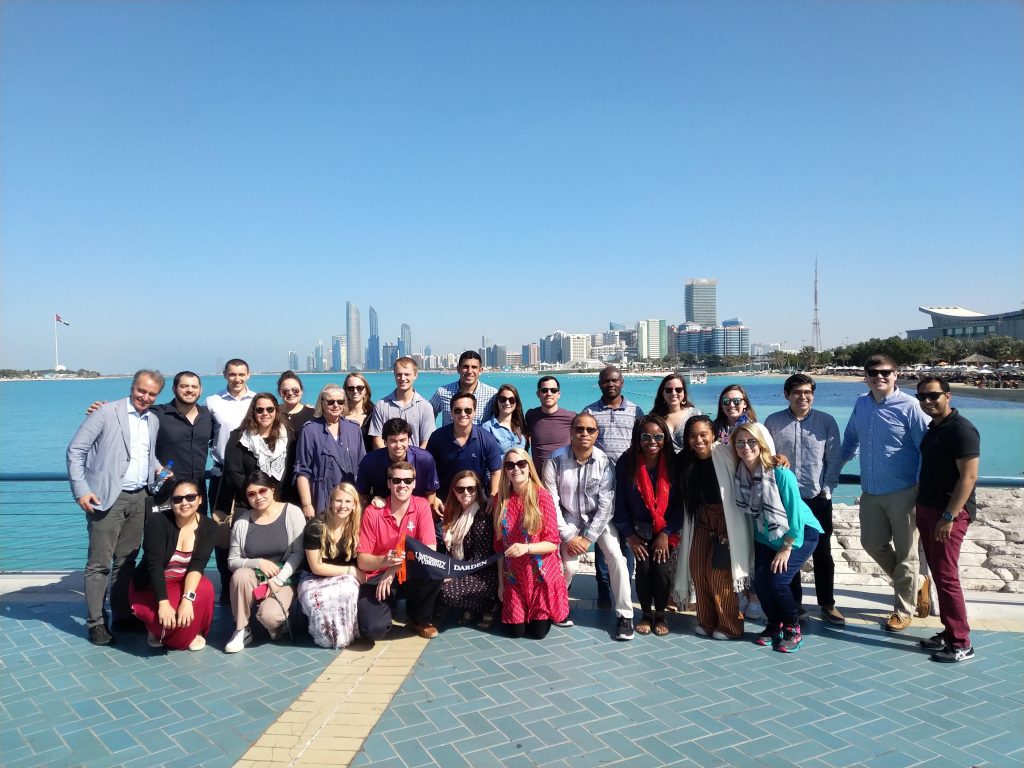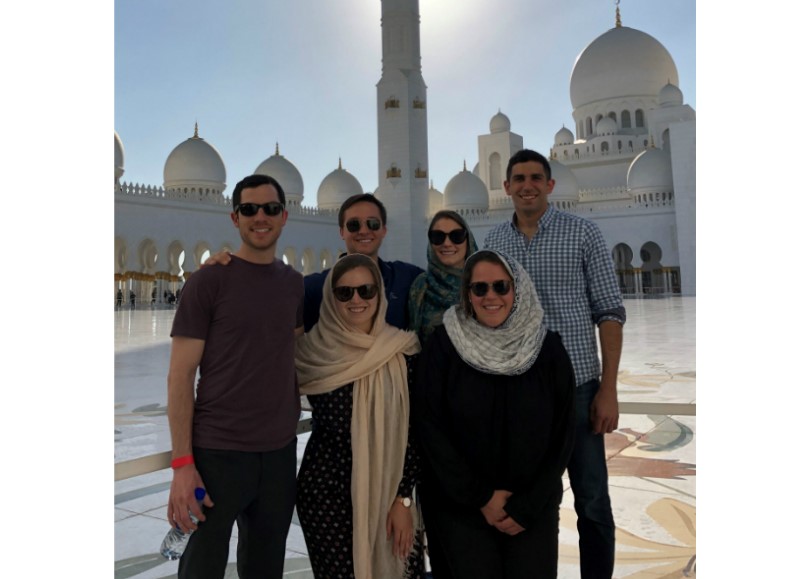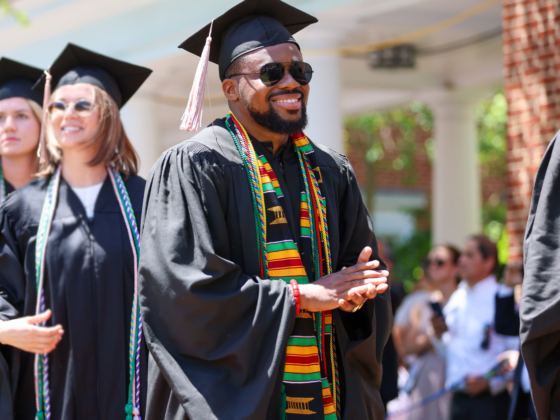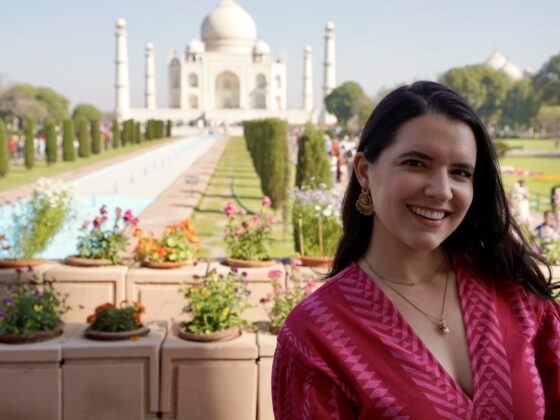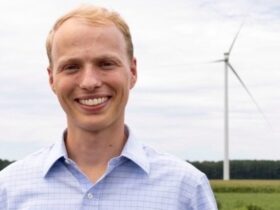Andrew Manuel (Class of 2019, far left) recently participated in “Honoring the Traditions of the Past While Confronting the Challenges of the Future,” the new Darden Worldwide Course to Dubai and Bahrain, led by Professors June West and Yiorgos Allayannis.
In his own words:
Staggering – that’s the word I searched for as I craned my neck to see the tops of buildings through the window of my taxi into Dubai. I had heard about this city in the Middle East that used oil money to fund manmade structures of outrageous proportion that were strewn across the desert. I expected to see random buildings surrounded by vast expanses of sand and characterized by lavish architecture unfit for the desert. My expectations were not met, but were instead thrown upside down. Dubai is stunning – I was shocked by its beauty and by how much I liked it. I arrived on New Year’s Eve and stayed in an AirBnB in the Marina area, which feels like a newer, grander, cleaner version of any marina I’ve been to in Chicago or Florida. Along the beach was a boardwalk of restaurants, shops, and hotel bars. After having spent a week in Jordan eating Middle Eastern food (which is delicious, but can lack variety), I was thrilled to get Shake Shack for lunch. It was such an easy place to be; the city felt safe and familiar – Western, but on a much grander scale.
Over the years I have heard of people leaving the U.S. or Europe to take an expat position in the UAE, and I always wondered what it was like for them. To me, the UAE was such a foreign place that I barely knew what to think about it. Going to Dubai on a Darden Worldwide Course was the perfect opportunity to learn about this country’s history, culture and business practices. One of the first things you notice about the people is that they are all from somewhere outside of Dubai. During the entire course, I don’t think I interacted with anyone actually born in Dubai. Because of this, it was easy to believe the astounding statistic that 80% of the population consists of expats. During our visit to the McKinsey office in Dubai the consultants told us that working in Dubai feels just like working in the Western world, and perhaps that’s because they typically interact with other expats who lived or studied in the U.S. or Europe. One of our final speakers during the course made a good point when she explained that there are different bands of populations within the UAE, and the degree to which you interact with locals depends on how much you move across those bands. I imagine that most expats stay within their respective bands.
When you walk around Dubai you can’t help but wonder, “Who pays for all of this, and is it all sustainable?” Most people (myself included before this course) seem to think that oil money pays for all of the extraordinary construction happening in Dubai, so I was surprised to learn that oil money only accounts for around five percent of Dubai’s GDP[1]. Oil revenues were pivotal in the original infrastructure boom that took place in Dubai, but we learned that production peaked in the early 1990s and has been falling ever since. The Dubai economy is now being led by trade, logistics and finance, of which the largest portion of government revenue now comes from fees. Dubai plans to make its business-friendly environment even friendlier to multinational companies in the future by expanding free zones to encompass the whole city and by increasing the duration of visas from three years to ten. During meetings with companies in Dubai, we continued to hear about the government’s focus on preparing for population growth, specifically addressing plans for health, housing and education. While some people may wonder if Dubai’s extreme growth is sustainable, those in Dubai have no doubt – the emirate is expecting and planning for continued growth. To anyone with misgivings about its future growth, Dubai would simply point to the World Expo 2020, which expects to bring 25 million visitors to the city.
Now that I have spent time in Dubai and the Middle East, I think about the question of whether or not I might return. The answer is most definitely “yes.” I would absolutely go back to visit for pleasure. I would also like to go back for work someday, which seems likely for me given my background and interest in the energy industry, specifically oil and gas. While Dubai has moved away from oil, its neighbors such as the Kingdom of Saudi Arabia, Abu Dhabi, and Bahrain have not. This Darden Worldwide Course to the Middle East was enlightening; I have a completely new perception of the region, and new feelings of appreciation and familiarity have replaced the doubt and skepticism that made it feel so far away.
[1] https://www.dubai.com/v/economy/
